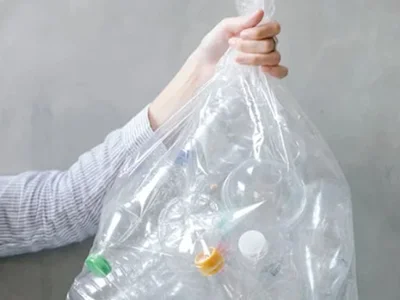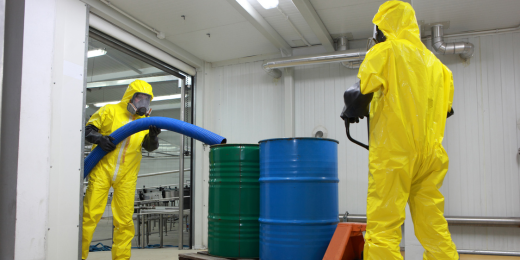The Single Strategy To Use For Reclaim Waste
The Single Strategy To Use For Reclaim Waste
Blog Article
A Biased View of Reclaim Waste
Table of ContentsReclaim Waste Things To Know Before You BuyReclaim Waste Fundamentals ExplainedSome Of Reclaim WasteReclaim Waste - The FactsFascination About Reclaim WasteRumored Buzz on Reclaim Waste

Never ever place hazardous materials down sinks, toilets or stormwater drains pipes Compounds including gas, oil, oil, chemicals and herbicides, and solvents such as paint strippers should not be poured down sinks, toilets or stormwater drains. These substances are hard to eliminate in the sewage treatment procedure and create pollution problems in our regional rivers.

Although liquid waste is a term that covers a wide range of products, there's a good reason that leaving its disposal to the professionals is recommended. Liquid waste is non-solid material that has no further use and has to be treated and dealt with according to regional, state and government regulations.
The smart Trick of Reclaim Waste That Nobody is Talking About
Although instances of fluid waste can include wastewater, fats, oils or grease, used oil, liquids, solids, gases or sludges and harmful house fluids, there are some that are considered to be a lot more hazardous than others when it comes to the setting and the wellness of animals and people alike. It's therefore that each state and area have actually rigorous laws linked to fluid waste management.
Fluid waste can be stored in holding containers or packaged in drums, intermediate mass containers or approved little containers before either being dealt with or gotten rid of by means of outsourced vacuum trucks. Provided the nature of the products, liquid waste can not go in the general waste stream and there are rigorous guidelines on just how to take care of it properly.
(https://gravatar.com/maximum5d830db060)Depending on a decision of the degree of danger, it might be essential to remediate those sites. In addition, dangerous fluid chemical wastes are managed waste and has to be tracked in conformity with the state waste legislation. Under the chain of guardianship and responsibilities, owners are liable and accountable for waste produced by a company.
One of the core applications for superabsorbent polymers (SAPs) is fluid waste solidification. liquid waste removal. SAPs are utilized by waste administration experts to protect against possibly damaging liquids from going into waterways, groundwater aquifers, and other delicate environments. Because fluids can swiftly move impurities right into ecological receptors and possibly add to geotechnical failures, liquid wastes are usually restricted from disposal in landfills
Facts About Reclaim Waste Uncovered
Generally, complimentary fluids are fluids that separate from the solid section of waste product. Fluid waste can consist of the following: HDD mud and cuttings Land fill leachate Wastewater therapy sludge & biosolids Dug up debris Oil and gas drill cuttings Settling fish pond filth Hydro Excavation slurry Coal combustion residuals/ash Tank bottom sludge Concrete grinding/polishing slurry Relevant Post: For a useful example of complimentary fluids separating from waste product, think about the adhering to circumstance: A waste administration professional loads a dump truck with sludge from a wastewater treatment plant's aeration basin, during a regular maintenance event.
When the vehicle driver arrives at the garbage dump, he notifications water seeping from the sludge and pouring from the dump vehicle. The tons was turned down by the land fill and the vehicle driver was compelled to deal with the waste as a fluid waste at a special facility, which enhanced the disposal fees significantly.
We also require to be responsible for the appropriate disposal of our waste materials. It is not enough that we pay waste disposal business to take care of our rubbish.
A Biased View of Reclaim Waste

Segregating your waste can start inside the home. Set apart dry and liquid waste as well as edible waste, biodegradable and non-biodegradable materials.
Layer the bottom with soil to soak up the wet waste. Layer the compost with damp and completely dry waste as well as dirt to maintain an equilibrium discover this between the damp and the completely dry.
Unknown Facts About Reclaim Waste
To promote faster disintegration, you can likewise add semi composted soil to the compost. If you observe the smell is becoming also solid, add extra newspapers and paper waste or include even more holes to the compost bin to maintain the balance of the waste materials.
We also require to be responsible for the proper disposal of our waste products. It is not enough that we pay waste disposal companies to take treatment of our rubbish.
Our waste, our duty. Have you ever before questioned what occurs to your fluid waste after it's accumulated? Did you understand that fluid waste can be reused?
Some Known Details About Reclaim Waste
Segregating your waste can begin inside the home. Segregate completely dry and fluid waste as well as edible waste, biodegradable and non-biodegradable products.
You can make use of old garbage can, container, garden pot or old plastic drums. Pierce four to 5 holes in the container so the air can flow. Layer the bottom with soil to absorb the wet waste. Beginning the composting process. Layer the compost with damp and dry waste along with dirt to preserve an equilibrium between the damp and the dry.
To facilitate faster decay, you can additionally add semi composted soil to the garden compost. If you discover the odor is coming to be too solid, include extra newspapers and paper waste or add more holes to the compost bin to maintain the equilibrium of the waste materials.
Report this page